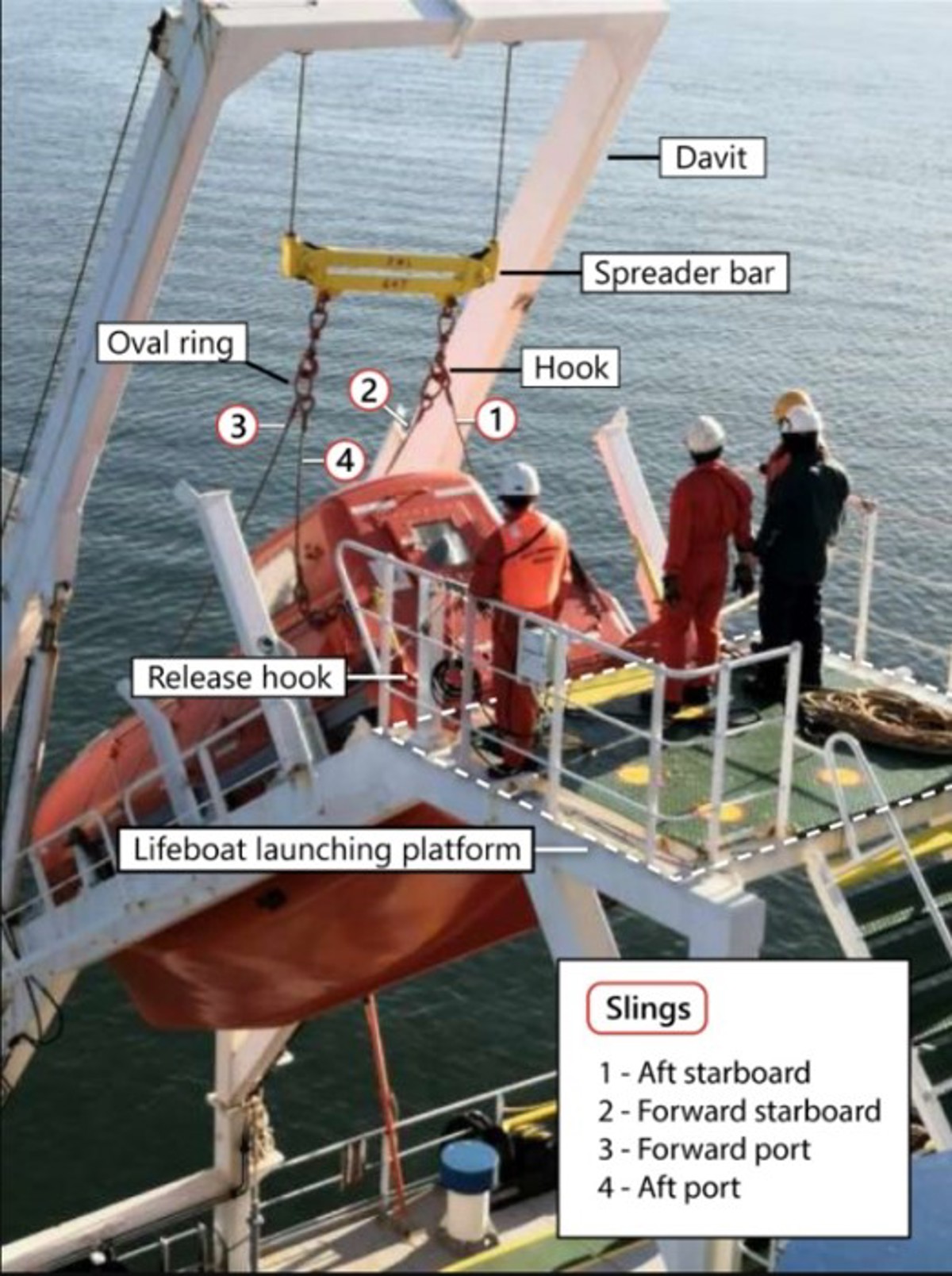Accidental release of free-fall lifeboat
- Safety Flash
- Published on 26 July 2022
- Generated on 10 February 2026
- IMCA SF 19/22
- 2 minute read
Jump to:
The Transportation Safety Board of Canada (TSB) has published Safety investigation report M20P0353 relating to the accidental release of a free-fall lifeboat from a bulk carrier.
What happened?
The incident occurred in December 2020. The crew were carrying out a free‑fall lifeboat drill while the vessel was at anchor, when the wire rope slings holding the lifeboat failed and the boat fell approximately 14m to the water. There were two crew members in the lifeboat at the time. Both were seriously injured and were transferred to hospital. The forward starboard side of the lifeboat’s hull was damaged. There was no pollution.

What went wrong?
- Findings as to causes and contributing factors – conditions, acts or safety deficiencies that were found to have caused or contributed to this occurrence;
- The crimp sleeves on the lifeboat slings had weakened over time as a result of intergranular stress-corrosion cracking;
- The manner in which the slings were attached to the hooks caused the load to concentrate on the aft starboard sling. This, in combination with the weakened crimp sleeves, caused the sequential failure of the slings and the aft port sling bracket;
- The crew had developed an informal practice that did not address the risk of standing unsecured in the lifeboat;
- There was no additional restraining device in use to protect the crew in the boat from falling when the slings failed.
- Findings as to risk – these are conditions, unsafe acts or safety deficiencies that were found not to be a factor in this occurrence but could have adverse consequences in future occurrences;
- In the absence of any international guidance requiring free-fall lifeboat slings to be verified periodically, inspected before use, and marked with a safe working load, there is a risk that this critical equipment will be overlooked during inspections or its safe limits will be exceeded, leading to an accident.
- If supervisors are required to take an active role during safety critical tasks such as lifeboat drills, their attention will be divided and they will be less able to attend to all aspects of the task, increasing the risk that safety critical items will not be identified in time to prevent an accident.
Related Safety Flashes
-
IMCA SF 02/22
20 January 2022
-
IMCA SF 17/15
26 October 2015
-
IMCA SF 03/21
19 January 2021
-
IMCA SF 10/12
11 October 2012
IMCA Safety Flashes summarise key safety matters and incidents, allowing lessons to be more easily learnt for the benefit of the entire offshore industry.
The effectiveness of the IMCA Safety Flash system depends on the industry sharing information and so avoiding repeat incidents. Incidents are classified according to IOGP's Life Saving Rules.
All information is anonymised or sanitised, as appropriate, and warnings for graphic content included where possible.
IMCA makes every effort to ensure both the accuracy and reliability of the information shared, but is not be liable for any guidance and/or recommendation and/or statement herein contained.
The information contained in this document does not fulfil or replace any individual's or Member's legal, regulatory or other duties or obligations in respect of their operations. Individuals and Members remain solely responsible for the safe, lawful and proper conduct of their operations.
Share your safety incidents with IMCA online. Sign-up to receive Safety Flashes straight to your email.